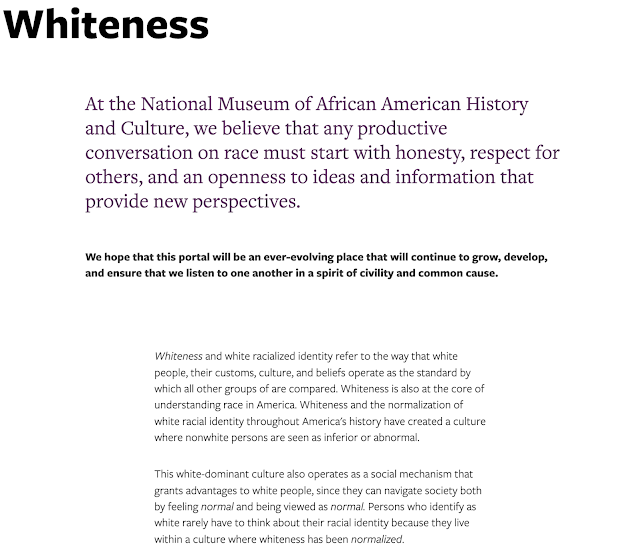Blogbook -- The Politics of Whiteness in the Logics of Outcomes

Entry 40 In my last post ( post 39 ), I discussed the ways white male authors and their historically cultivated habits of language deeply inform the CCSS and its appendix essay , which explains the focus on “argument” over “persuasion” when teaching language and writing to high school students in the U.S. But I was just getting started in explaining the problems with the appendix essay and the focus on argument. There’s more. I’ll continue in this post. The reason I go into such detail about the appendix’s discussion is that it is indicative of most logics in all course or programmatic outcomes, in both secondary and postsecondary contexts, and it’s good to know what we must orient ourselves against and why if we wish to be antiracist. The appendix’s discussion of “writing” explains three kinds of writing students should learn: “argument,” “informational/explanatory writing,” and “narrative.” However, half or more of this larger section in the appendix on writing focuses on ...



